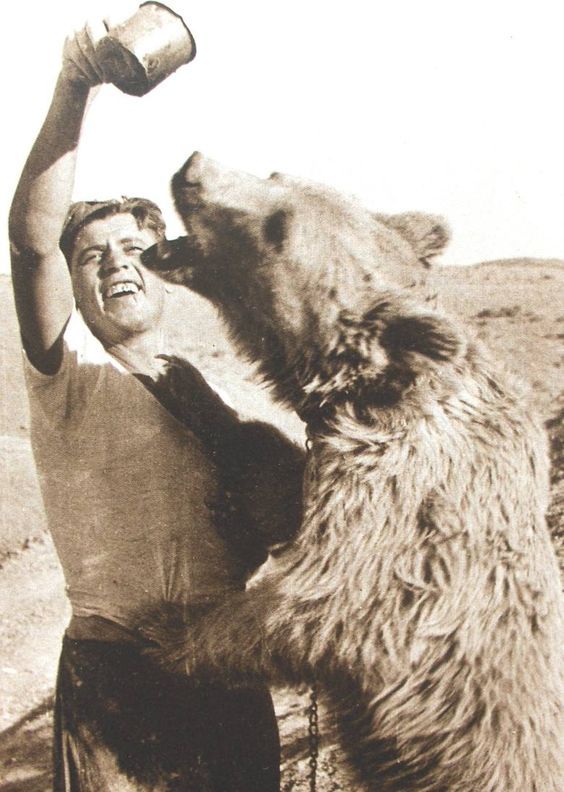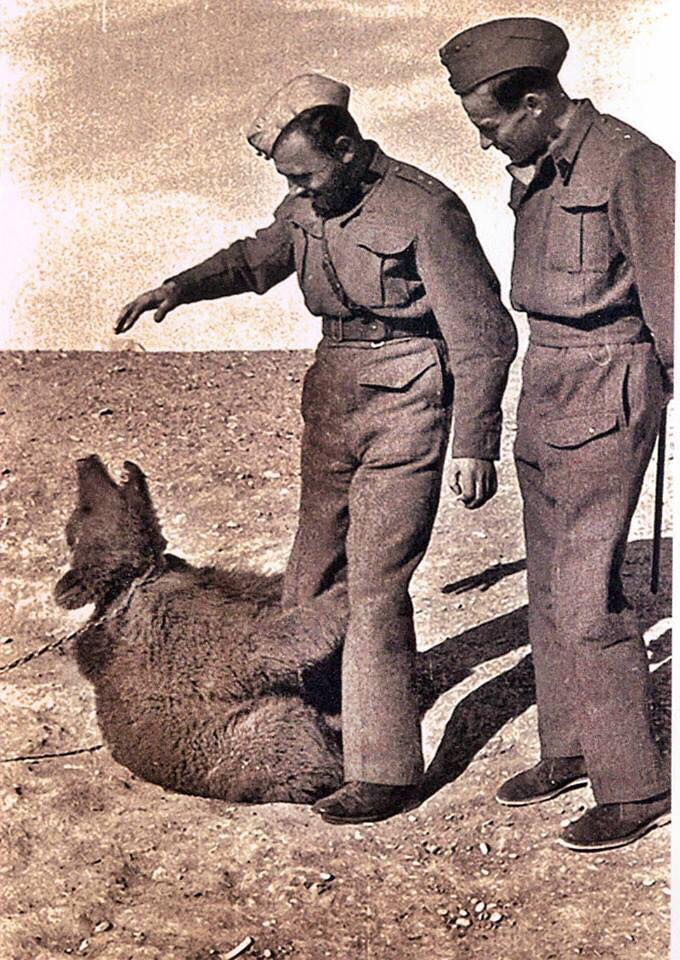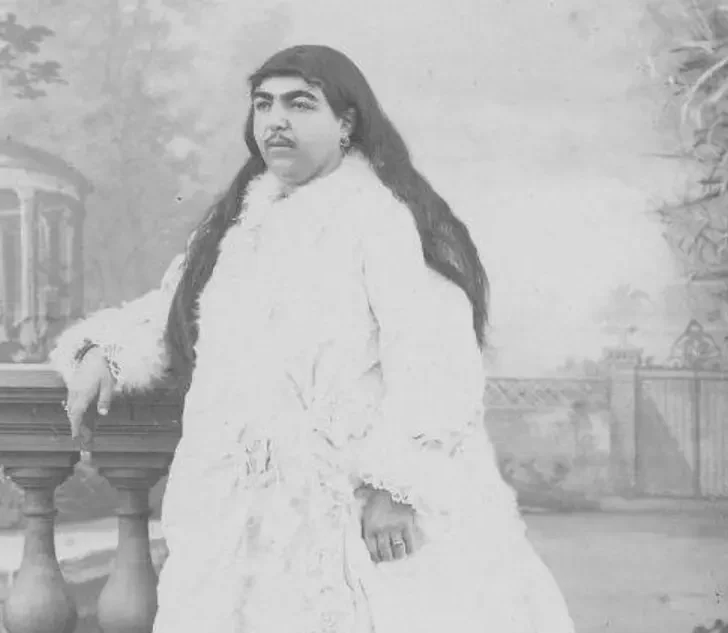World War II is not really the ideal setting for heartwarming tales, but the story of Wojtek, the soldier bear, is a remarkable exception. Rescued as a cub by Polish soldiers in Iran in 1942, Wojtek became a military mascot and a beloved comrade-in-arms.


Known for boosting morale and even carrying ammunition during the critical Battle of Monte Cassino, Wojtek’s contributions to the war effort were more than just symbolic.
In this article we will explore the life of Wojtek, revealing how a bear could embody hope and camaraderie in the worst of times.
Historical Context: Why Were Polish Soldiers in Iran?
After Germany and the Soviet Union invaded Poland in September 1939, igniting World War II, many Polish soldiers, civilians, and government officials were arrested or exiled.
The Soviets deported hundreds of thousands of Polish people to labor camps throughout the Soviet Union, particularly remote Siberian work prisons.
On June 22, 1941, Germany stabbed Russia in the back and launched Operation Barbossa, still one of the biggest military campaigns ever attempted. The Soviet Union, now conveniently on the side of the Allied powers, agreed to release thousands of Polish prisoners it had captured.
Among these included military personnel and civilians who were allowed to form an army under Polish command but within the Soviet Union.
In 1942, the British government negotiated with the Soviets to allow the new Polish army to move to Iran to secure the precious oil wells and Allied supply lines.
Once in Iran, the Polish army was re-equipped and reorganized by the British. Their numbers grew as Polish exiles, eager for revenge, joined their ranks.
Finding Wojtek
One day, while stationed in the mountains of Iran, some of these Polish soldiers ran into a young Iranian boy who had been taking care of an orphaned bear cub.
The boy told them that the bear’s mother had been shot by hunters, and he had been taking care of him. The soldiers were moved by the boy’s story and decided to buy the small bear for a few tins of food and some chocolate.
They named their new comrade in arms Wojtek, which means “joyful warrior” in Polish. Wojtek quickly adapted to life among the soldiers.
The cub was fed a diet of condensed milk from an old vodka bottle and ate fruits, marmalade, honey, and beer, which became his favorite drink.
As he grew, so did his bond with his human companions. He enjoyed playing and wrestling with the other soldiers, which endeared him even more to his fellow troops.
His presence provided a much-needed morale boost to the soldiers, many of whom were far from home and weary from the hardships of war.

The bond between Wojtek and the Polish soldiers deepened as they moved across the Middle East, with the bear becoming an intrinsic part of the unit. He would sleep in the soldiers’ tents, march alongside them during parades, and was even taught to salute when greeted.
Life As A Military Mascot
Wojtek was not just a source of fun and amusement; he became a symbol of resilience and boosted the morale of the group when they needed it the most.
Wojtek’s daily routine mirrored his fellow soldiers. He slept in their tents and often cuddled up with them at night for warmth. He developed a strong bond with his human comrades, who treated him like one of their own.
He would sit by the campfires during meals, share their food, and engage in horseplay that kept spirits high. Wojtek enjoyed eating a variety of foods, including fruits, marmalade, honey, and even beer, which became his favorite.
Wojtek’s status as the company mascot granted him certain privileges. Unlike other animals, he was allowed to move freely within the camp and was even given special permission to ride in the supply trucks with the soldiers.
This close proximity allowed Wojtek to develop a deeper bond with the men, who saw him as a loyal companion.
One of Wojtek’s favorite activities was play-wrestling with the soldiers. Despite his growing size and strength, he was always gentle, playfully pinning his comrades without harming them.
Wojtek’s integration into the Polish II Corps extended beyond the camp. He traveled with the soldiers as they moved from Iran to Egypt and eventually to Italy.
During these journeys, he continued to share quarters with the men, either in their tents or later on military transports.
The soldiers saw Wojtek as a symbol of hope and resilience. His presence brought a touch of joy to their lives during difficult times, and his loyalty reinforced the strong bonds among the troops. The emotional support he provided was invaluable, as the fatigue of war can quickly wear a soldier out.
Wojtek The War Hero
One of Wojtek’s most famous acts of heroism occurred during the Battle of Monte Cassino, a major turning point in the war against German forces in Italy.
As a member of the 22nd Artillery Supply Company, Wojtek assisted in transporting ammunition. Copying the soldiers, he carried crates of heavy artillery shells.
Wojtek’s actions during his time with the Polish II Corps not only bonded him to the soldiers but also led to his formal enlistment as a soldier, complete with rank and serial number.
This wasn’t done just because the soldiers loved him so much. There was also a practical need; When the Polish II Corps was preparing to embark on British transport ships bound for Italy, regulations did not allow animals onboard.

Wojtek would have been left behind unless he was given official status as a soldier. So his comrades officially enlisted Wojtek as a private and assigned him a service number.
With his new status, Wojtek received the same treatment and provisions as the other soldiers. He had his own rations and even a paybook. He participated in all aspects of military life, including marching with the soldiers and even saluting superior officers.
Post-War Years
In 1945, after the war ended, the soldiers who had fought alongside Wojtek faced the difficult decision of what to do with him. Everyone was preparing to return home and no one had the accommodations to take care of a full grown bear.
They realized that civilian life may not be the right place for Wojtek, so they made arrangements for him to live at the Edinburgh Zoo.
Wojtek arrived at the Edinburgh Zoo in 1947 and quickly became a star attraction. Wojtek’s friendly demeanor and backstory made him a beloved figure at the zoo.
He was known for being gentle with visitors, including children, and his habit of greeting people with a friendly “salute” was something everyone came to see.
Despite living in a zoo, Wojtek didn’t give up his old habits. He enjoyed smoking or eating cigarettes, drinking beer, and playing with visitors, often engaging in light wrestling matches with them.
Wojtek The Bear’s Legacy
Wojtek, the beloved soldier bear, has been commemorated in Poland through several statues.
Like statues dedicated to other military and political figures, these statues immortalize his legacy and show the deep affection the Polish people have for their wartime companion.
One of the most well-known statues of Wojtek is located in Kraków, in Jordan Park. This bronze statue, created by sculptor Bronisław Chromy, was unveiled in 2014 and depicts Wojtek alongside a Polish soldier.
The statue captures Wojtek’s friendly and playful nature while commemorating his contributions during World War II.
Another statue of Wojtek can be found in Żagań in western Poland. This stands in front of the Palace of Żagań and depicts Wojtek holding an artillery shell, an ode to his role in carrying ammunition during the Battle of Monte Cassino. The statue was funded by the Polish military and local authorities.
A lesser-known but equally important statue of Wojtek is located in Szymbark, a village in northern Poland. This statue shows Wojtek standing on his hind legs, holding a soldier’s helmet. The statue is part of a larger museum dedicated to Polish history and culture.
Later Life And Death
Many of Wojtek’s former comrades made regular trips to the Edinburgh Zoo to visit their old friend.
During these reunions the soldiers would share their wartime experiences with the public. His old war buddies would often bring treats, such as beer or fruit, for him to enjoy.
In his later years, Wojtek’s health began to decline. He suffered from ailments common to bears in captivity, such as arthritis and obesity.
Despite the best efforts of the zoo staff and his devoted visitors, Wojtek’s condition worsened, and he passed away on December 2, 1963, at the age of 21.
Sources
https://en.wikipedia.org/wiki/Wojtek_(bear)












Leave a comment